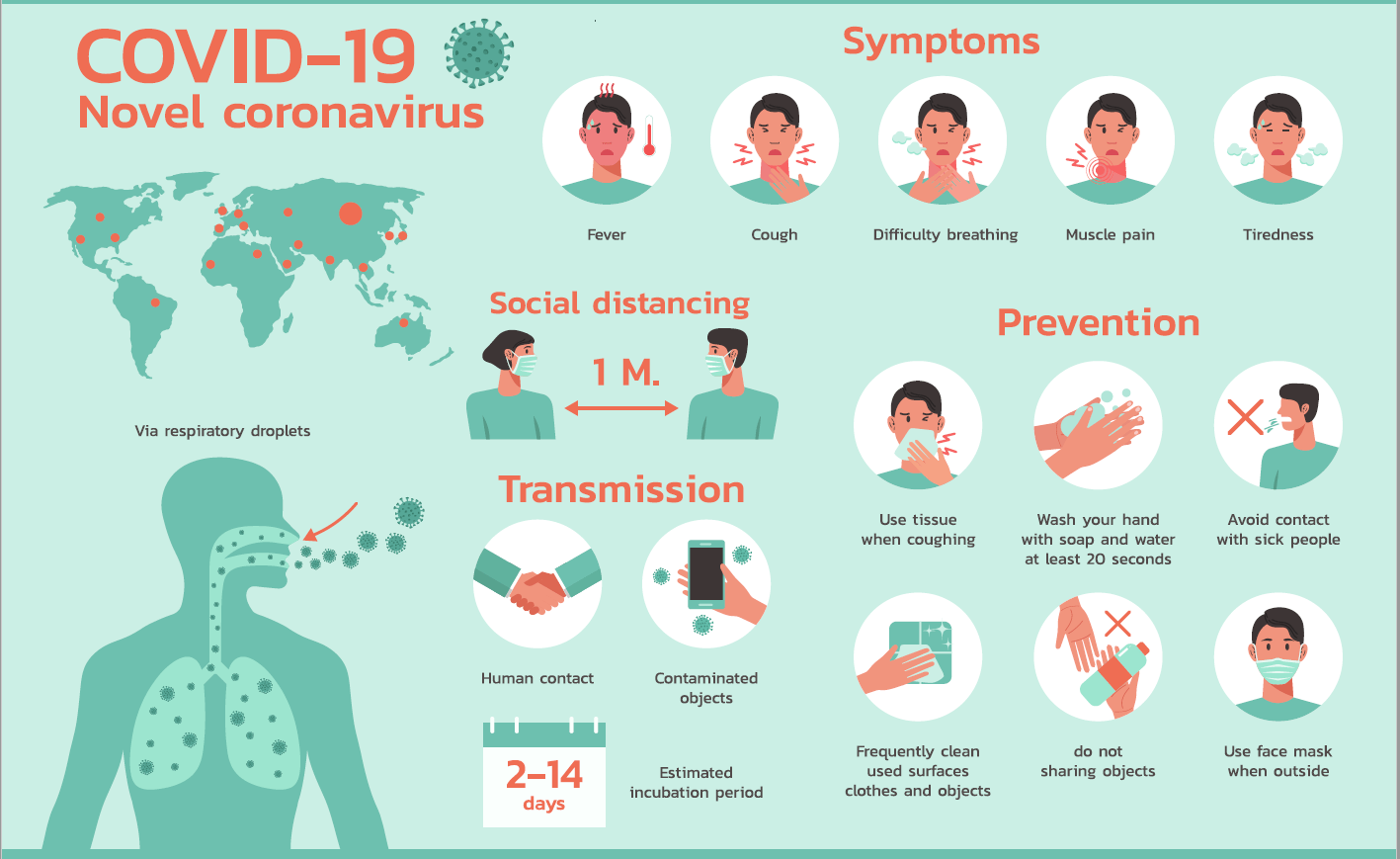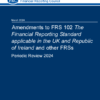
by John McCarthy Consulting Ltd. | Jun 2, 2020 | Blog
We have recently published a survey of 22 public company financial statements focusing on their Coronavirus (COVID-19) disclosures.
Of those companies surveyed, the John Lewis Partnership plc had some of the greatest level of going concern discussion in the notes to the financial statements, with a prominent note under the ‘Basis of Preparation’ section on page 95.
Our thirty-page report, is available on our website, and includes more detail of the types of disclosures that are prevalent at the moment and elaborates on the topics below. All this research is available to purchase for just €125+VAT, for immediate download.
The various disclosures in the report cover topics such as:
• Emphasis of Matter
• Key Audit Matters in Audit Reports
• Going Concern/Viability
• Post Balance Sheet Events/Subsequent Events
For more on the Coronavirus (COVID-19) disclosures, please see our published report on our website here.
In our Publications Store, you will find many complementary products that deal with the Coronavirus (COVID-19), especially letters of representation that seek written representations from the management of relevant entities about their preparedness for the future impact of the virus on their organisations.

by John McCarthy Consulting Ltd. | May 26, 2020 | Blog
Last week we highlighted in our published survey of 22 public company financial statements an example of an Emphasis of Matter audit report.
This week, our blog focuses on an extract from the Irish company Grafton plc (in its 31 December 2019 financial statements) which describes the risk: ‘The Group is exposed to the impact of the recent outbreak of the (COVID-19) virus epidemic in the countries where it operates and also in countries where some of its suppliers are based’.
This thirty-page report, just published on our website, is available to purchase for €125+VAT, for immediate download.
The various disclosures in the report cover topics such as:
• Emphasis of Matter
• Key Audit Matters in Audit Reports
• Going Concern/Viability
• Post Balance Sheet Events/Subsequent Events
For more on this topic please see our published report on our website here.
In our Publications Store, you will find many complimentary product that deal with the Coronavirus (COVID-19), especially letters of representation that seek written representations from the management of relevant entities about their preparedness for the future impact of the virus on their organisations.

by John McCarthy Consulting Ltd. | May 20, 2020 | Blog
Coronavirus (COVID-19) disclosures in published financial statements
In our published survey of 22 public company financial statements we highlight several useful examples of disclosure that company directors, auditors, accountants and financial controllers will find of relevance, in the midst of the Coronavirus (COVID-19) pandemic.
This thirty-page report, just published on our website, is available to purchase for €125+VAT, for immediate download.
The various disclosures in the report cover topics such as:
• Emphasis of Matter
• Key Audit Matters in Audit Reports
• Going Concern/Viability
• Post Balance Sheet Events/Subsequent Events
The company with the Emphasis of Matter audit report was Martin Currie Global Portfolio Trust plc (a company that invests in alternative investment instruments) with a 31 January 2020 year end. Its financial statements were signed off by the auditors on 9 April 2020. Note 18 to the accounts states that since the period end up to 7 April 2020, the company’s net assets fell by 6.8%.
For more on this topic please see our published report on our website here.here.

by John McCarthy Consulting Ltd. | Apr 20, 2020 | Blog, News
Cybercrime is not without victims and is taken extremely seriously by law enforcement.
Teenagers can drift into cyber-crime without realising the seriousness of their actions. In a timely video message from the UK National Crime Agency (NCA), parents are warned about the crimes teenagers can get involved in, especially during COVID-19 confinement.
The NCA have put together a series of online resources aimed at students/parents/guardians/carers and teachers. Coding, programming and computing are great skills to learn, but only if used safely.
The Garda Síochána have similar resources available at the Garda National Cyber Crime Bureau (GNCCB) website.
The Garda site also includes advice on the most common forms of money laundering during this Coronavirus era such as ransomware, spoof bank websites, Investment scams and CEO fraud, among several others.
Now is a good time to tighten up your AML procedures. For our latest 2020 Anti-Money Laundering Policies & Procedures Manual (retails for €150+VAT) see our online store here.
The Manual contains everything you need to successfully implement the requirements of the Criminal Justice (Money Laundering and Terrorist Financing) Acts, 2010 to 2018 and the Register of Beneficial Ownership.
Comes with a, free of charge, Excel spreadsheet called the ‘AML Control Sheet’ which firms may use to give a ‘helicopter’ view of progress made with keeping client AML data up to date.
Catch up on your AML CPD training here with webinars (all at €45 each and available on demand) on various AML topics like:

by John McCarthy Consulting Ltd. | Apr 7, 2020 | News
Many accountancy firms have now implemented WFH, some better than others, but even the better prepared ones are in uncharted territory.
We wrote two weeks ago that many accountants and their staff are on a steep learning curve discovering what it’s like to work from home. Now it’s time to revisit the question and see what particular firms are doing. Email and tell me what you are doing, in particular, at john@jmcc.ie. I would love to hear from you.
Ten Top Tips:
Here are our ten tips, based on research in the last two weeks, from our contact with accountants in practice. Here we go:
- Organise virtual coffee meetings, where at a certain point in the day, staff get together virtually, to chat as if they were at the office water fountain. This can include Team building – where Partners/Managers make a priority to have regular virtual conversations that are not always about work. Partners/Managers make time to check in on staff just to see how they are mentally and physically – we need our people in good shape when they return to office working;
- Separate work from home – for some, this could be the first time that they have worked in such an environment, one that will also have a unique level of anxiety and stress. As we said in our last blog, encourage them to avoid the trap of working longer hours and never really switching off when working from home; encourage staff to clear their work away to ensure client confidentiality and to take breaks between work time and home time;
- Keep communication lines open. There are video telephone tools like Zoom for external communications where participants can see each other and share screens, if necessary. A trusted practitioner contact of ours recommends Slack, as an internal communication tool where staff can keep in touch, share queries, video/audio calls. It’s really easy to set up and staff need no training at all in how to use it, as its so simple and intuitive;
- Encourage staff to help others around them in a safe way (e.g. deliver groceries to socially cocooned neighbours);
- Ensure physical security and confidentiality, taking account of the potential lack of document printing/shredding facilities at home. In some circumstances printing may not be possible, especially with younger members of staff living in shared accommodation;
- Mental and physical wellbeing – this is the most important of all. Your employees are the firm’s greatest asset. Encourage staff to maintain proper sleep patterns, take fresh-air breaks during the day (as much as is legally allowed) and stay active.See this short video (8.5 minutes) on mental health from the popular UK Accountex speaker, Nick Elston on his blog 5 ways to work from home and manage anxiety. Nick gives some essential and comforting tips on navigating this difficult situation. Check it out, here.
- IT – ensure everyone has the right equipment, their connections operate effectively and know how to log into the firm’s system in a secure fashion. Remind staff about the safe storage/destruction of any paper documents created at home;
- Create a second laptop screen at home with Duet for your IOS or Android devices – Thanks to Sean O’Rourke in Killarney for this tip;
- Business Continuity – Update the Practice Business Continuity Plan for the current environment and for likely developments over the next three, six, twelve and eighteen months ahead;
- Communication – Above all, clear and frequent communication is key to this process. Provide daily updates, with clear, relevant information and all necessary links to external websites and other sources of information. create a forum where staff can freely ask questions.
And finally you have to have a laugh sometimes – from my colleague Mark Lee Funny Tips for Accountants Working from Home.
We would love to hear your WFH stories, the things to do/avoid. Contact us at john@jmcc.ie or to set or to set up a 30 minute, no obligation, phone call, in my online calendar here.










